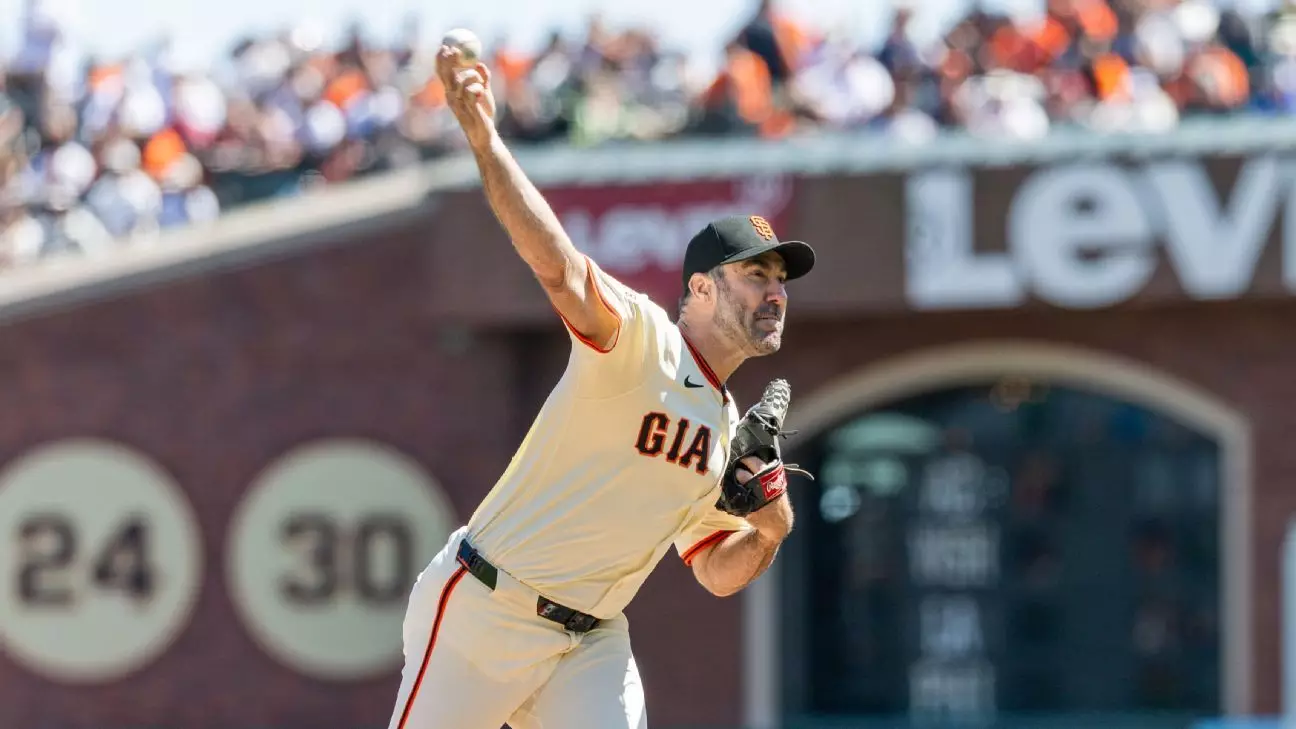In a recent turn of events, the San Francisco Giants have announced that right-handed pitcher Justin Verlander will be placed on the 15-day injured list due to a right pectoral injury. This decision was made by manager Bob Melvin following the team’s disheartening 8-4 loss to the Kansas City Royals. Verlander, who had hoped to confront this hurdle head-on, was forced to acknowledge during a practice session that he would be unable to pitch in his next scheduled game against the Washington Nationals. The impact of this injury is significant, not just for the team but for Verlander himself, who is struggling to find his footing in a season that has already been fraught with challenges.
The Prudent Move: Taking a Necessary Step Back
Verlander’s comments reveal the athlete’s complexity; he understands the need for caution. “They’re saying, ‘give yourself a blow. Take the 15 days and let’s get this behind you and be ready to go,’” he stated. This approach exemplifies a seasoned player’s wisdom—prioritizing long-term health over short-term gains. It’s a choice many athletes struggle with; pushing through injuries can lead to prolonged setbacks. The Giants’ coaching staff seems to agree with this mentality, as Melvin expressed confidence that Verlander would only miss a couple of starts.
Detractors of this decision might argue that star players should always be on the field, yet the reality of professional sports requires a balance between ambition and physical capability. For Verlander, currently winless in ten starts, the tenacity to want to compete is commendable but may need to take a backseat for the sake of recovery and performance.
Performance Issues: A Season of Struggles
Verlander’s season has been subpar, with an 0-3 record and a 4.33 ERA. His recent outing against the Athletics was particularly troubling, marked by issues with both velocity and command. The five walks he issued in just four innings marked a season-low in terms of control. “It’s always difficult to be 100 percent in this game,” he noted with a hint of frustration, reflecting the mental strain that accompanies physical ailments. This moment of vulnerability reveals the internal conflict athletes face—courageously battling through when their body no longer cooperates.
The nerve irritation in his pectoral muscle further complicates the narrative, as Verlander insists this issue isn’t linked to his prior neck injury from last season. The uncertainty surrounding the injury elevates concern for fans and team management alike, as it introduces a forecast of potential setbacks if not meticulously monitored.
Legacy and Future Aspirations
With 20 seasons behind him, the three-time Cy Young Award winner has built an impressive legacy that includes a 262-150 win-loss record and a 3.31 career ERA. Verlander’s history of resilience shines a hopeful light amidst the clouds of adversity. The Giants and their fans are undoubtedly looking forward to seeing him reclaim his dominance on the mound. Despite his current struggles, Verlander’s experience and determination may yet play a crucial role in the second half of the season, should he navigate this injury efficiently.
In the world of sports, every setback has the potential to become a comeback. While Verlander’s journey may be temporarily stalled, his commitment to returning stronger is a powerful message to athletes across all disciplines. How this narrative unfolds will not only be a testament to his skill but also to his indomitable spirit.


Leave a Reply